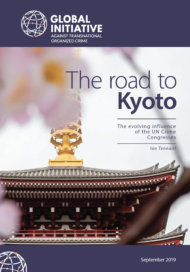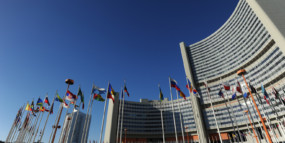Posted on 11 May 2022
As multilateralism itself comes under intense pressure, and as existing responses to transnational organized crime continue to fail, we’ll analyse the UN responses to the issue with some of the world’s leading experts as we try to unpack diplomatic discussions, policy developments and programme implementation.
1st series: Road to Kyoto (2020-2021)
2nd series: UN and Organized Crime (2022 – ongoing)
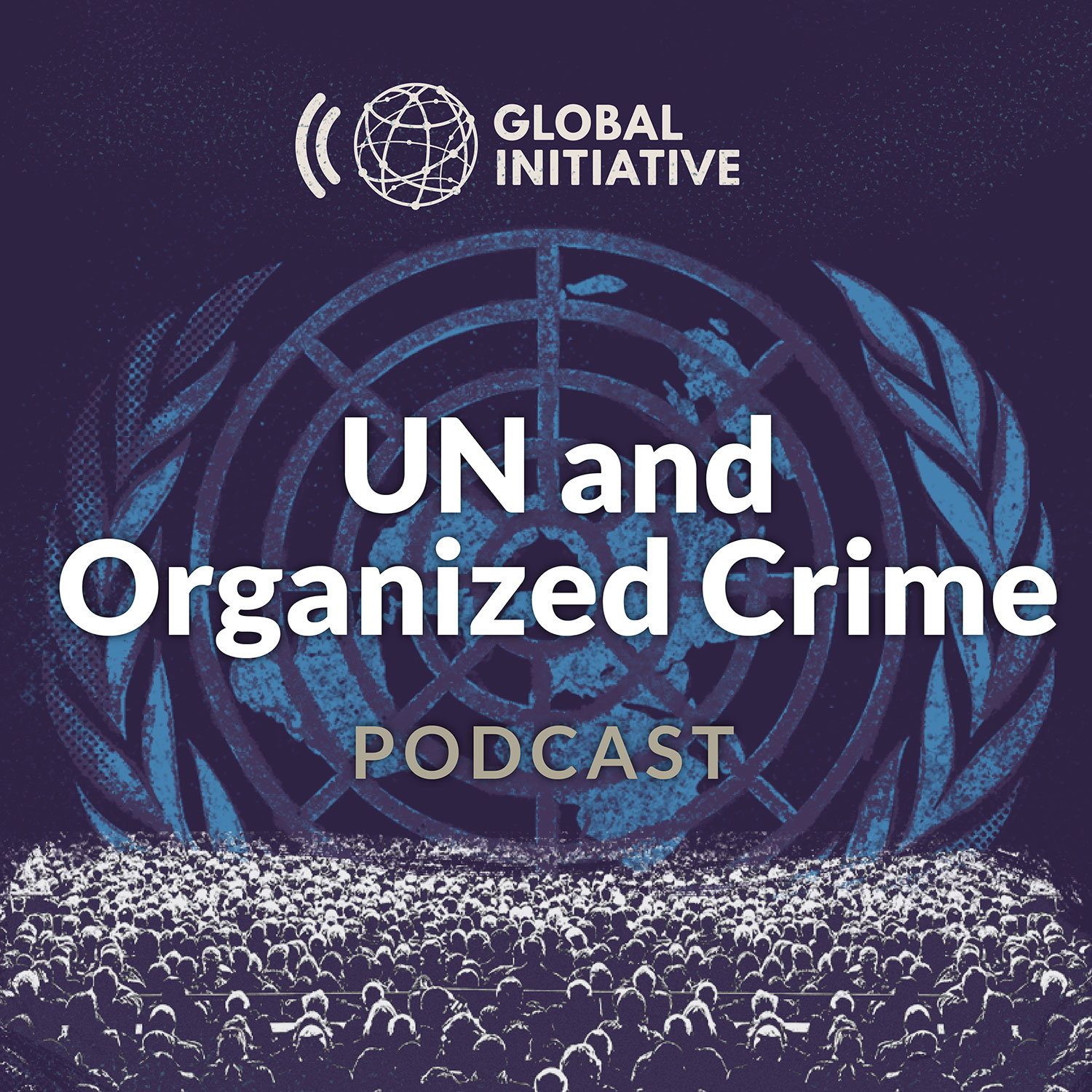
In this episode, Ian speaks to three civil society grantees of the Resilience Fund, who attended the most recent UN Crime Commission in May. Anna Romandash, Noor Azizha and Lucie Andrea Gutiérrez speak about their experiences at the local level, and why the next Crime Congress should pay heed to their and others plight, in order to better build community resilience to organized crime
Speakers:
Anna Romandash, Resilience Fund grantee (Ukraine)
Noor Azizha, Resilience Fund grantee (Myanmar)
Lucie Andrea Gutiérrez, Resilience Fund grantee (Colombia)
Presenter: Ian Tennant, Director of Multilateral Engagement, Global Initiative Against Transnational Organized Crime

In this episode, Ian Tennant talks to Dr Matti Joutsen, author of a recently published history of the UN Crime Programme, to discuss the history of the UN Crime Congress, and the central role that civil society has played throughout its history. The next Congress, takes place in Abu Dhabi, in April 2026. Dr Joutsen explains how the Congress has evolved, and what diplomats should aim to achieve this time round.
Presenter: Ian Tennant, Director of Multilateral Engagement, Global Initiative Against Transnational Organized Crime
Links:
Book: The United Nations Programme on Crime Prevention and Criminal Justice by Matti Joutsen

This episode explores the importance of gender equality and gender sensitive policies and programmes in national and international responses to organized crime, including how these issues are approached in multilateral negotiations. Ian Tennant speaks to Ambassador Corinne Kitsell, an experience British multilateral diplomat, who is currently the UK's Permanent Representative to several international organizations in Vienna.
Presenter: Ian Tennant, Director of Multilateral Engagement, Global Initiative Against Transnational Organized Crime
Speakers:
H.E. Corinne Kitsell, UK Permanent Representative in Vienna.
Additional Links:
UN-TOC Watch - UN-TOC Watch aims to support the UN and wider multilateral system so that it can respond more systematically to the threats posed by organized crime and help mitigate its impact in the areas such as conflict and violence, the environment, migration and cyberspace.

On 29 July 2024, the reconvened session of the Ad Hoc Committee (AHC) to conclude negotiations on a new UN convention on cybercrime began. The AHC is mandated to submit a draft convention to the UN General Assembly by 9 August. Since the AHC began its negotiations in 2022, competing visions for this convention have not been reconciled. Some countries have pushed for a treaty with a narrow scope and clear rights protections and safeguards. Others, who have pushed for an expanded instrument with intrusive and far-reaching powers. This special episode discusses the role of safeguards in promoting cooperation. Leading experts in international cooperation explain the need for safeguards and how the convention can help develop a common understanding of minimum guarantees to build trust between states and enable cooperation.
Presenter: Ana Paula Oliveira, Senior Analyst, Global Initiative against Transnational Organized Crime
Speakers:
Michael Daniel, President & CEO of the Cyber Threat Alliance.
Marika McAdam, an independent international law and policy advisor

This second podcast episode on cybercrime and critical technologies in South East Asia starts to explore what the possible regional and indeed global responses might be to tackling these entrenched and growing threats. With the support of the Australian Ministry of Foreign Affairs and Trade and our partner, Lydekker, the GI-TOC has been exploring the specific vulnerabilities and challenges of these trends in South East Asia and exploring, with an expert multistakeholder group what best practises might exist in order to combat them.
Louise talks to Helena Huang and Horest Au-Yeung, two regional experts, to hear their perspectives on the responses that their respective organisations are seeing, supporting and delivering.
Presenter: Louise Taylor, Asia-Pacific Representative, Global Initiative Against Transnational Organized Crime
Guests:
Helena Huang Yixin, Associate Research Fellow, S.Rajaratnam School of International Studies (RSIS)
Horest Au-Yeung, Coordinator of Asia & South Pacific Desk, Cybercrime, INTERPOL
Additional Reading
A dream deferred or a near miss? UN committee postpones decision on cybercrime convention

This episode explores the challenges that cybercrime and the exploitation of critical technologies pose in Indonesia and the Philippines and the broader South East Asia region. With the support of the Australian Ministry of Foreign Affairs and Trade and our partner, Lydekker, the GI-TOC has been engaging across the region to understand the specific vulnerabilities and challenges that these growing threats pose to the populations and governments in South East Asia. Louise talks to Giselle Hernandez and Tio Syamsuri, two regional experts, to hear their perspectives on the challenges faced by their respective countries, and whether these threats pose a broader and more global threat.
Presenter: Louise Taylor, Asia-Pacific Representative, Global Initiative Against Transnational Organized Crime
Guests:
Giselle Hernandez, State Solicitor, Office of the Solicitor General of the Philippines (presenting in her personal capacity)
Praswistiadi (Tio) Syamsuri, Senior Expert on Financial Inclusion, RISE Indonesia.
Additional Reading
A dream deferred or a near miss? UN committee postpones decision on cybercrime convention

This episode reflects on what was supposed to be the concluding session of the UN’s ad Hoc committee that had been set up to negotiate a new convention on cybercrime. Following seven negotiating sessions over two years, each lasting two weeks and costing almost a million dollars each for the UN, member states have not come to agreement on what the convention should do, or even what it should be called. Ian talks to Summer Walker and Ana Paula Oliveira, who represented GI-TOC at the 7th AHC in January and February, to get their take on what happened, hear their insights they drew from being in the room, and talk about what happens next.
Presenter: Ian Tennant, Director of Multilateral Engagement, Global Initiative Against Transnational Organized Crime
Guests:
Summer Walker, Head of Multilateral Affairs, NY, Global Initiative Against Transnational Organized Crime
Ana Paula Oliveira, Senior Analyst, Global Initiative against Transnational Organized Crime
Additional Reading
A dream deferred or a near miss? UN committee postpones decision on cybercrime convention

In this episode, Ian talks to William O'Neill, the UN's designated expert on the human rights situation in Haiti. In the context of the escalating and untrammelled gang violence in Haiti, and the unprecedented security and human rights crisis, O'Neill explains how the multilateral system is responding. How will the multinational police mission led by Kenya work? What are the human rights priorities? And what effect with targeted sanctions have?
Presenter:
Ian Tennant, Head of Vienna Multilateral Representation & Resilience Fund, Global Initiative Against Transnational Organized Crime
Guests:
William O'Neill, the United Nations designated expert on the human rights situation in Haiti.
Additional Links
Illicit economies and the UN Security Council
(GI Paper) Gangs of Haiti: Expansion, power and an escalating crisis
(GI paper) Gang control and security vacuums: Assessing gender-based violence in Cité Soleil, Haiti
(GI Blog) New sanctions target Haiti gangsters

This episode explores how 'ECOSOC consultative status' enables NGOs to engage on policy issues at the UN, and how GI-TOC finally gained its accreditation earlier this year. The episode also discusses the challenges NGOs face in gaining this status, and in more generally engaging in multilateral settings.
Presenter(s):
Ian Tennant, Head of Vienna Multilateral Representation & Resilience Fund, Global Initiative Against Transnational Organized Crime
Guests:
Tuesday Reitano, Deputy Director, Global Initiative Against Transnational Organized Crime
Maithili Pai, UN Advocate, International Service for Human Rights
Additional Links

In this episode, Ian Tennant talks to Amy Brouillette of the International Press Institute to discuss the risks that the treaty negotiation poses to freedom of the media.
This is one of many risks and challenges that remain to be resolved as delegates await a final draft treaty to discuss at the concluding session in early 2024.
Presenter(s):
Ian Tennant, Head of Vienna Multilateral Representation & Resilience Fund, Global Initiative Against Transnational Organized Crime
Guests:
Amy Brouillette, Director of Advocacy, International Press Institute (IPI)
Additional Links
Global Initiative against Transnational Organized Crime

This episode explores the latest developments in the process to negotiate a UN treaty on cyber crimes, including a look back at April's 5th Ad Hoc Committee meeting, the upcoming publication of a draft treaty, and the next meeting in August. GI-TOC's Ian Tennant discusses key issues such as how the treaty should enable capacity building for states whilst protecting rights, and ensuring the involvement of civil society - with leading experts from Chatham House and the CyberPeace Institute.
Presenter(s):
Ian Tennant, Head of Vienna Multilateral Representation & Resilience Fund, Global Initiative Against Transnational Organized Crime
Guests:
Joyce Hakmeh, Deputy Director, International Security Programme; Co-Editor, Journal of Cyber Policy, Chatham House
Pavlina Pavlova, Public Policy Adviser, CyberPeace Institute.
Additional Links
Global Initiative against Transnational Organized Crime
UN cybercrime treaty Ad Hoc Committee: Circle remains unsquared

In April 2023, the Ad Hoc Committee to elaborate a treaty on the misuse of ICTs for criminal purposes will meet to discuss a chapter on technical assistance, among other topics. As well on 6 March, technical assistance will be discussed during the intersessional with multi-stakeholders and governments.
In this podcast, Summer Walker speaks to Tomslin Samme-Nlar and Nate Allen, authors of report, The downsides of digital revolution: Confronting Africa’s evolving cyber threats. They discuss security risks identified in the report specific to cybercrime and the implications for this on technical needs as well as recommendations for treaty negotiators.
Presenter(s):
Summer Walker, Head of Multilateral Affairs, NY, Global Initiative Against Transnational Organized Crime
Guests:
Tomslin Samme-Nlar, Research Director at Gefona Digital Foundation, a not-for-profit digital policy research organization in Cameroon.
Nate Allen, Associate professor of Security Studies at the Africa Center for Strategic Studies, Washington DC.
Additional Links:
The downsides of digital revolution: Confronting Africa’s evolving cyber threats

In this episode, we look back at the recent CITES Conference of the Parties in Panamá, and explore how this multilateral process addresses environmental crimes. The GI-TOC was there and focussed on international cooperation and responses to the online illegal wildlife trade. But what was achieved at the Conference and what impact it could it have on the damaging criminal markets concerned.
Presenter(s):
Ian Tennant, Head of Vienna Multilateral Representation & Resilience Fund, Global Initiative Against Transnational Organized Crime
Guests:
Simone Haysom, Thematic Lead on Environmental Crime, Global Initiative Against Transnational Organized Crime.
Abim Anim, Officer in charge of Nigeria Customs Service Special Wildlife Office.* World Customs Organisation (WCO) accredited Expert, Technical and Operational advisor in the field of Illegal Wildlife Trade. National Contact Point For WCO's Regional Intelligence Liaison Office (West Africa).
Kumar Paudel, Conservation scholar from Nepal. For over 10 years, he has worked to protect threatened wildlife from illegal harvesting and trade, and he leads a conservation non-profit organization called Greenhood Nepal. Kumar was a Fellow of the GI-TOC's Resilience Fund in 2022.
Alastair MacBeath, Analyst, Global Initiative against Transnational Organized Crime
Additional Links

In this episode, Ian sits down with Dr Jarrett Blaustein, the author of a new book 'Unraveling the Crime-Development Nexus' .
Together, Ian and Jarrett discuss the evolution and history of the UN's response to organized crime and its governance structures, in the context of the upcoming Conference of Parties to the UNTOC. They consider the link between crime and sustainable development, and why more integrated and strategic approaches are needed from the multilateral system.
Looking ahead to the 17-21 October UNTOC Conference of Parties, they explore how to enhance the role of civil society and network building, to bolster our chances in the future of the fight against transnational organized crime.
Presenter(s):
Ian Tennant, Head of Vienna Multilateral Representation, Global Initiative Against Transnational Organized Crime
Guest(s)
Dr Jarrett Blaustein, Associate Professor and Senior Fellow at the School of Regulation and Global Governance (RegNet) at the Australian National University - Twitter
Additional Links:
Book Offer: 'Unraveling the Crime-Development Nexus' by Jarrett Blaustein is available online and UN & Organized Crime Podcast listeners can get a discount on the eBook by using the promo code: RLFANDF30

In this episode, we discuss the ongoing UN negotiations to create a global instrument to address cybercrime, or what it is called formally: countering the use of information and communications technologies (ICTs) for criminal purposes.
In May and June the second meeting of the UN Ad Hoc Committee (AHC) took place in Vienna. It was the first meeting that dealt with the potential substance of a treaty. Delegates addressed three main topics: general provisions, such as overall purpose; provisions on criminalization, and provisions on procedural measures and law enforcement.
Presenter(s):
Ian Tennant, Head of Vienna Multilateral Representation & Resilience Fund, Global Initiative Against Transnational Organized Crime
Summer Walker, Head of Multilateral Affairs, NY, Global Initiative Against Transnational Organized Crime
Guests:
Neno Malisevic, Director of Digital Diplomacy at Microsoft
Rahman Jeet Singh Cheema, Asia Policy Director and Senior International Counsel at Access Now

From 30 May to 10 June, the second cybercrime UN 'AHC' negotiation meeting took place in Vienna. As delegations started exploring the issues in more detail, governments differed widely on what crimes to cover under the convention and how to define them, but they were generally eager to include measures to address a wide array of crimes committed using computer systems under provisions covering procedural measures and law enforcement. In this episode, Summer Walker and Ian Tennant discuss what was discussed at that meeting, and what's coming up at the next session which starts in New York at the end of August.
Presenter(s):
Ian Tennant, Head of Vienna Multilateral Representation & Resilience Fund, Global Initiative Against Transnational Organized Crime
Summer Walker, Head of Multilateral Affairs, NY, Global Initiative Against Transnational Organized Crime
Additional Links:
https://globalinitiative.net/analysis/un-cybercrime-convention/
https://globalinitiative.net/initiatives/un-cyberwatch/
https://www.unodc.org/unodc/en/cybercrime/ad_hoc_committee/ahc-second-session.html
https://www.unodc.org/unodc/en/cybercrime/ad_hoc_committee/ahc_third_session/main.html

On 28 February, UN Member States began the official negotiation process of a new UN legal instrument on cybercrime.
In this episode we delve into the substantive issues at play in the first negotiation session and in subsequent written submissions by UN Member States, ahead of the next session which starts on 30 May in Vienna. There are major gaps between different camps, and geopolitical pressures and fractures to navigate. We discuss what to expect for the upcoming session and beyond as Member States attempt to find consensus.
Presenter: Ian Tennant, Head of Vienna Multilateral Representation & Resilience Fund, Global Initiative Against Transnational Organized Crime
Guest: Summer Walker, Head of Multilateral Affairs, NY, Global Initiative Against Transnational Organized Crime
Additional Reading
(GITOC) UN Cybercrime negotiations: Industry roundtable, 29 March 2022
(GITOC) Guidance note on a draft convention on cybercrime
(GITOC) GI-TOC Director's statement to the first session of the UN Ad Hoc Committee on cybercrime
(GITOC) Control, alt, or delete? The UN cybercrime debate enters a new phase
(United Nations) Ad Hoc Committee to Elaborate a Comprehensive International Convention on Countering the Use of Information and Communications Technologies for Criminal Purposes
(Council of Europe) The Budapest Convention and its Protocols

On 28 February, UN Member States began the official negotiation process of a new UN legal instrument on cybercrime.
In this episode we look back at the first negotiation session with a representative of the UK's delegation. We consider the major issues in the negotiations, how different positions are emerging on issues like defining cybercrimes, what activities should be criminalized, and how human rights and sovereignty play into discussions. We also discuss how widely adopted existing instruments like the UN Convention against Transnational Organized Crime, or the Council of Europe Cybercrime Convention are shaping the discussions.
Presenter: Ian Tennant, Head of Vienna Multilateral Representation & Resilience Fund, Global Initiative Against Transnational Organized Crime
Guest: Matthew Osborne, Official at the Foreign, Commonwealth & Development Office (FCDO): Cyber Policy Department - he was part of the UK delegation for the first ad hoc committee meeting in New York earlier this year.
Additional Reading
(GITOC) UN Cybercrime negotiations: Industry roundtable, 29 March 2022
(GITOC) Guidance note on a draft convention on cybercrime
(GITOC) GI-TOC Director's statement to the first session of the UN Ad Hoc Committee on cybercrime
(GITOC) Control, alt, or delete? The UN cybercrime debate enters a new phase
(United Nations) Ad Hoc Committee to Elaborate a Comprehensive International Convention on Countering the Use of Information and Communications Technologies for Criminal Purposes
(Council of Europe) The Budapest Convention and its Protocols
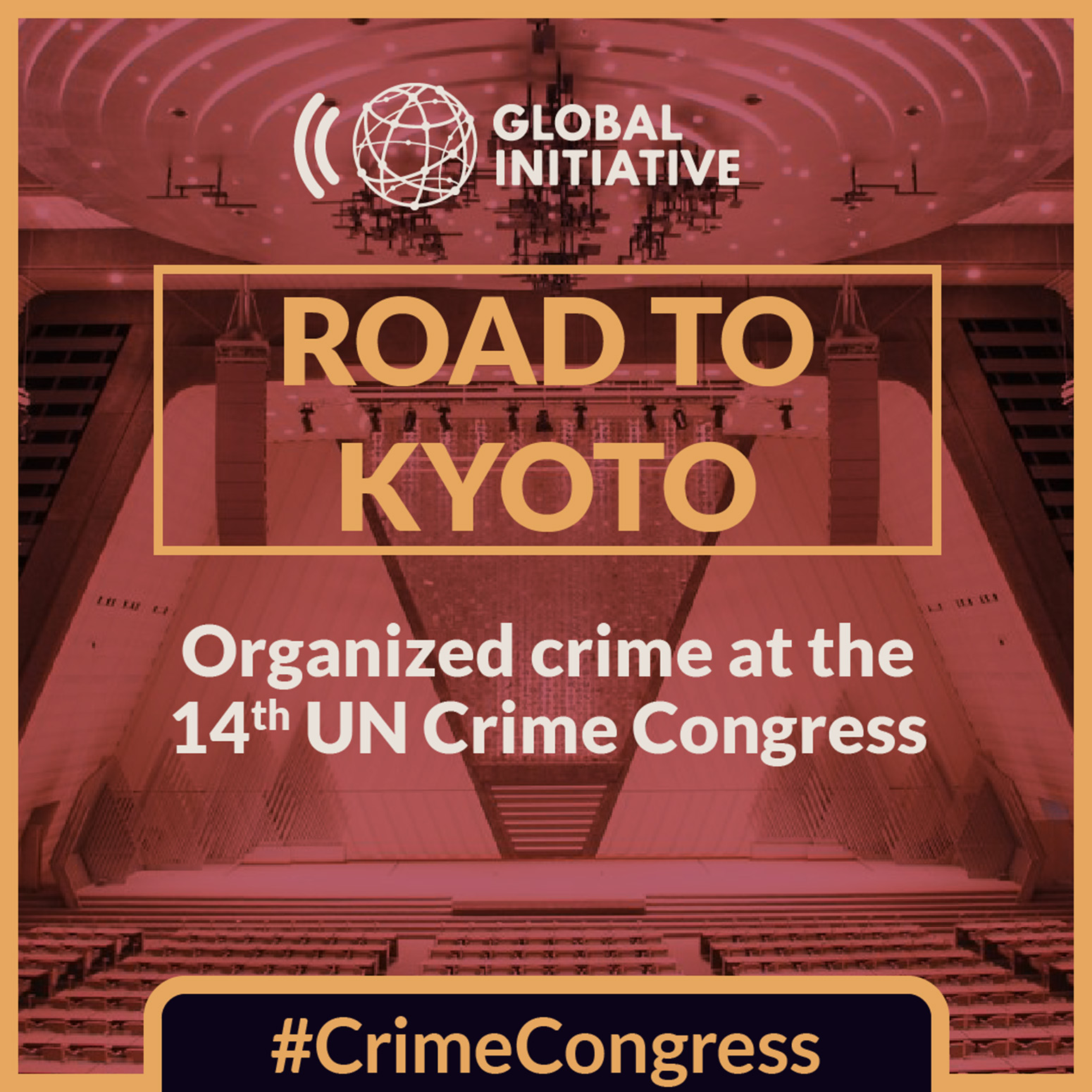
In the final episode of the Road to Kyoto podcast series, Ian Tennant speaks to civil society participants at the 14th Crime Congress to reflect on what happened at the Congress, and what it means for the future of multistakeholder responses to transnational organized crime.
Presenter: Ian Tennant, Fund Manager, Global Initiative Against Transnational Organized Crime
Guests:
Siria Gastelum Felix, Resilience Director, Global Initiative Against Transnational Organized Crime
Jean-Paul Laborde, Ambassador, Parliamentary Assembly of Mediterranean; Professor, French Military Academy and member of the GI Network of Experts.
Gerson Nozea, Haiti Country Director, Rapha International.
GI-TOC’s review of the Congress is here.
The Kyoto Declaration.
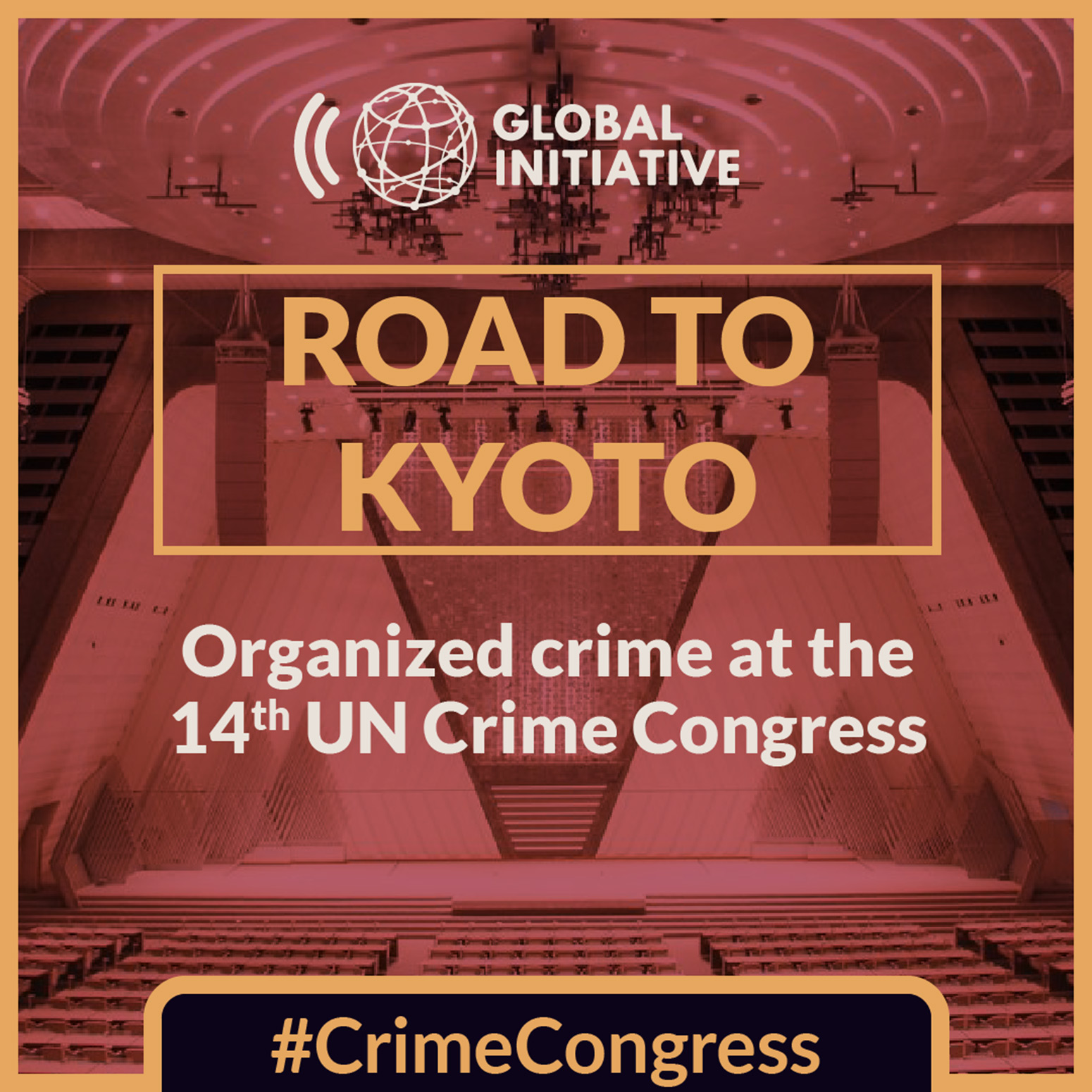
We have arrived in Kyoto, at least virtually. In this episode of the Road to Kyoto podcast, Ian Tennant reflects on how the Congress has functioned so far, and what that means for civil society's ability to engage and influence this multi-stakeholder meeting. Information on GI-TOC's range of events at the Congress can be found here.
Presenter: Ian Tennant, Fund Manager, Global Initiative Against Transnational Organized Crime
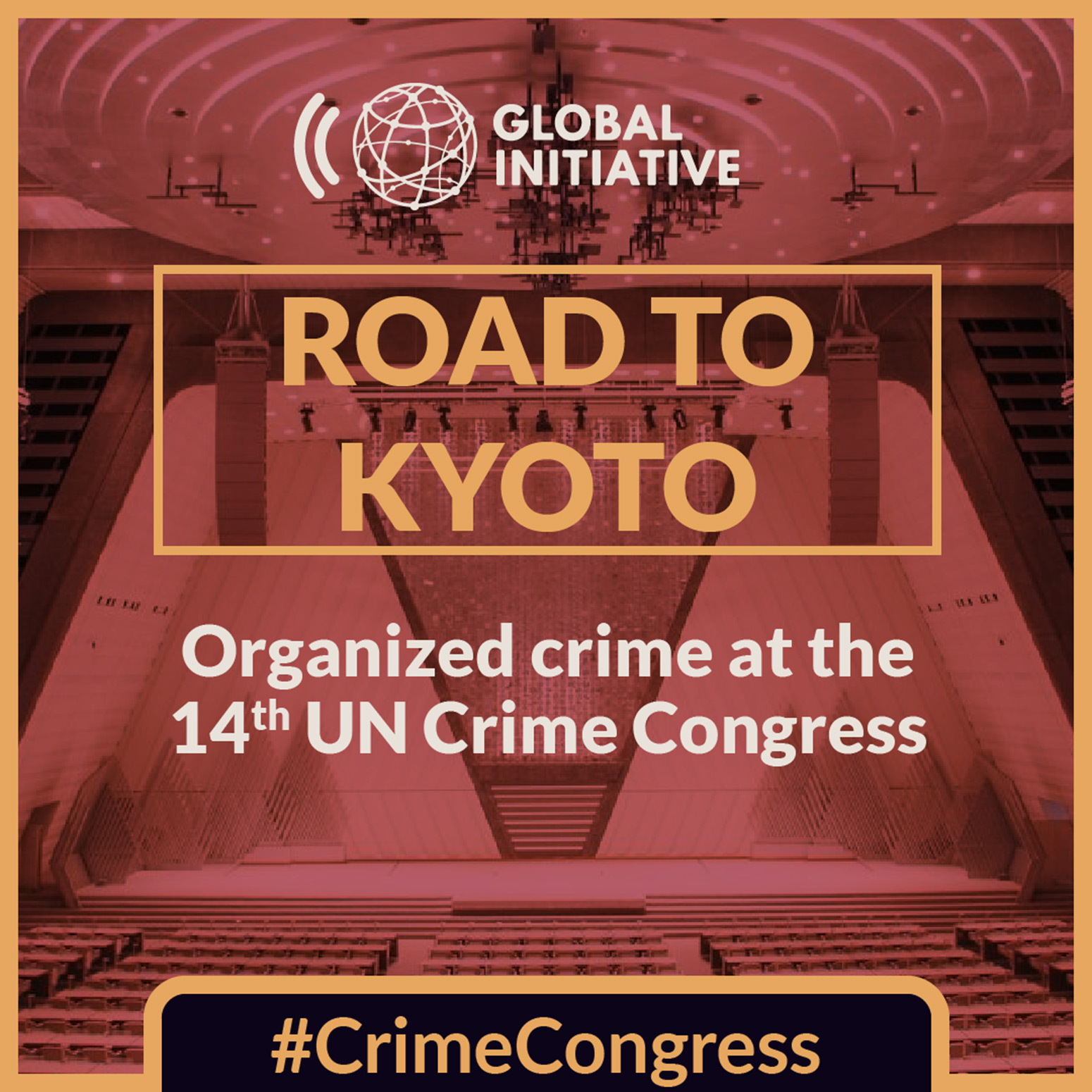
In this episode Ian is joined by a selection of distinguished guests and members of the GI Network of experts. They will discuss the current global state of organized crime, in the context of the quinquennial Congress, and the more recent developments as a result of COVID-19.
The podcast will also analyse the current framework of international responses to issues of concern to the Experts, and make suggestions on what should be the key issues and recommendations discussed by governments and civil society at the Congress. The recording is scheduled to last one hour.
Presenter: Ian Tennant, Fund Manager, Global Initiative Against Transnational Organized Crime
Guests:
Marika McAdam, International Legal and Policy Advisor.
John Githongo, CEO of Inuka Kenya Ni Sisi.
Lucia Dammert, Professor of International Relations at Universidad de Santiago de Chile.
Jay Albanese, Professor at Virginia Commonwealth University and Co-Founder of Criminologists without Borders.
Useful Links
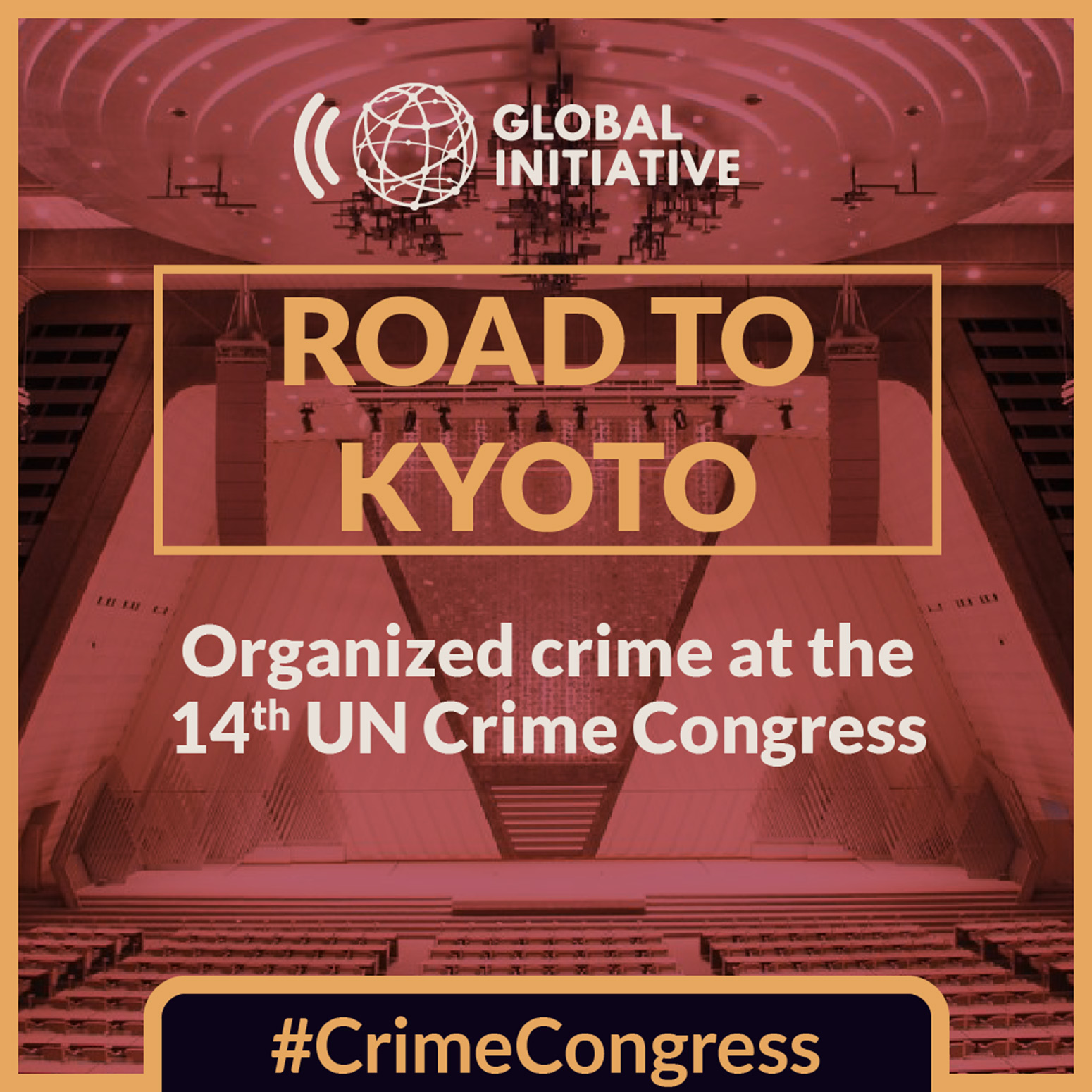
Ian takes a look back at the first major UN Conference on organized crime to have taken place this year – the Conference of Parties to the UN Convention Against Transnational Organized Crime – the UNTOC.
He will consider what implications this Conference had for the upcoming Crime Congress, the broader international response to organized crime, and the place of civil society within those discussions.
Presenter: Ian Tennant, Fund Manager, Global Initiative Against Transnational Organized Crime
From the Faces of Assassination to Deep Dive: Exploring Organized Crime and Africa and the Global Illicit Economy to The Impact: Coronavirus and Organized Crime - all podcasts from the GI are available here or wherever you else you may listen.
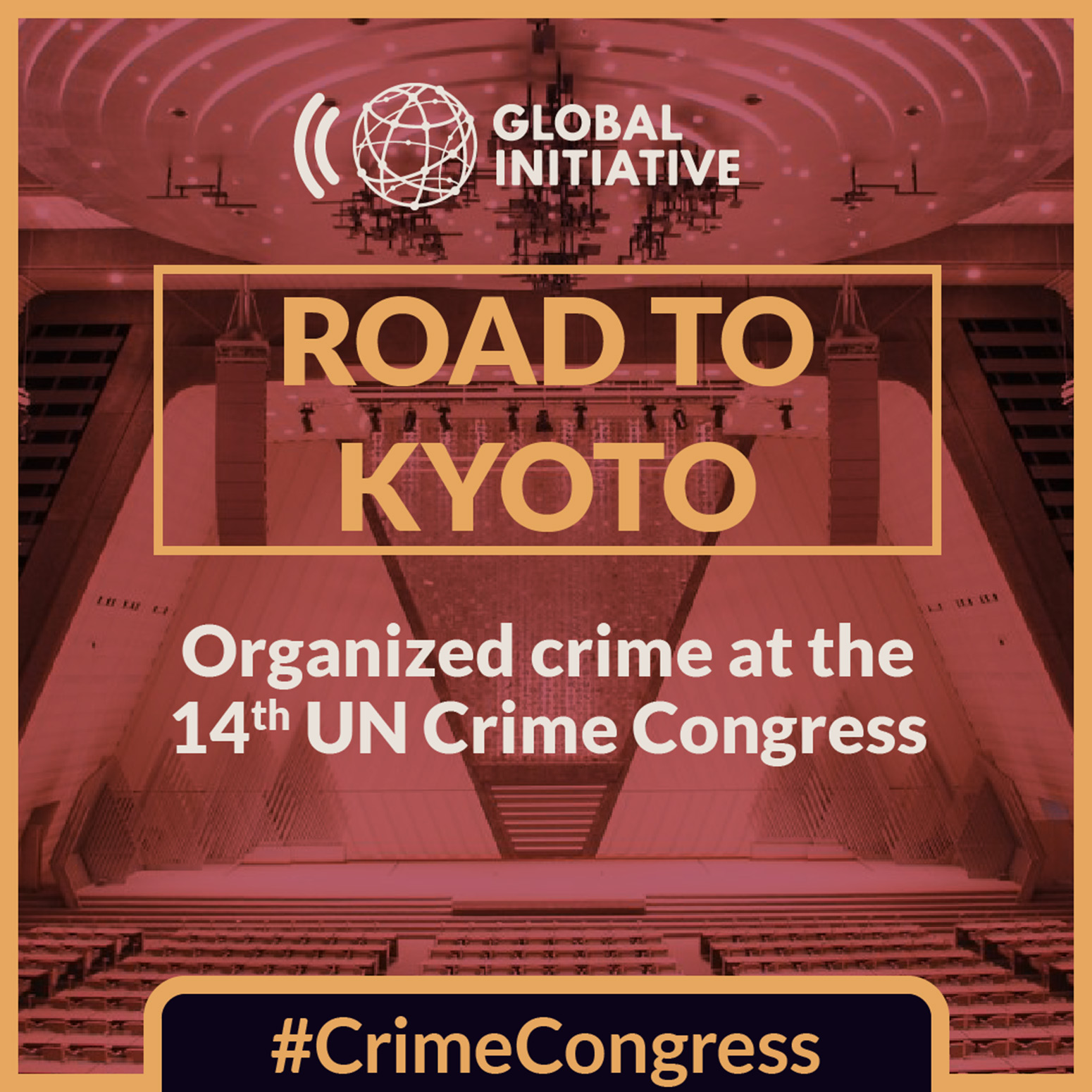
The Global Initiative has always championed the community leaders and civil society groups and activists who face the damage caused by organized crime at the local level. In this episode, we will hear some of those voices.
All of the people you will hear from are beneficiaries of the Global Initiative’s Resilience Fund, which supports exactly these kind of groups and individuals as they seek to build their community’s resilience against criminal governance.
Presenter: Ian Tennant
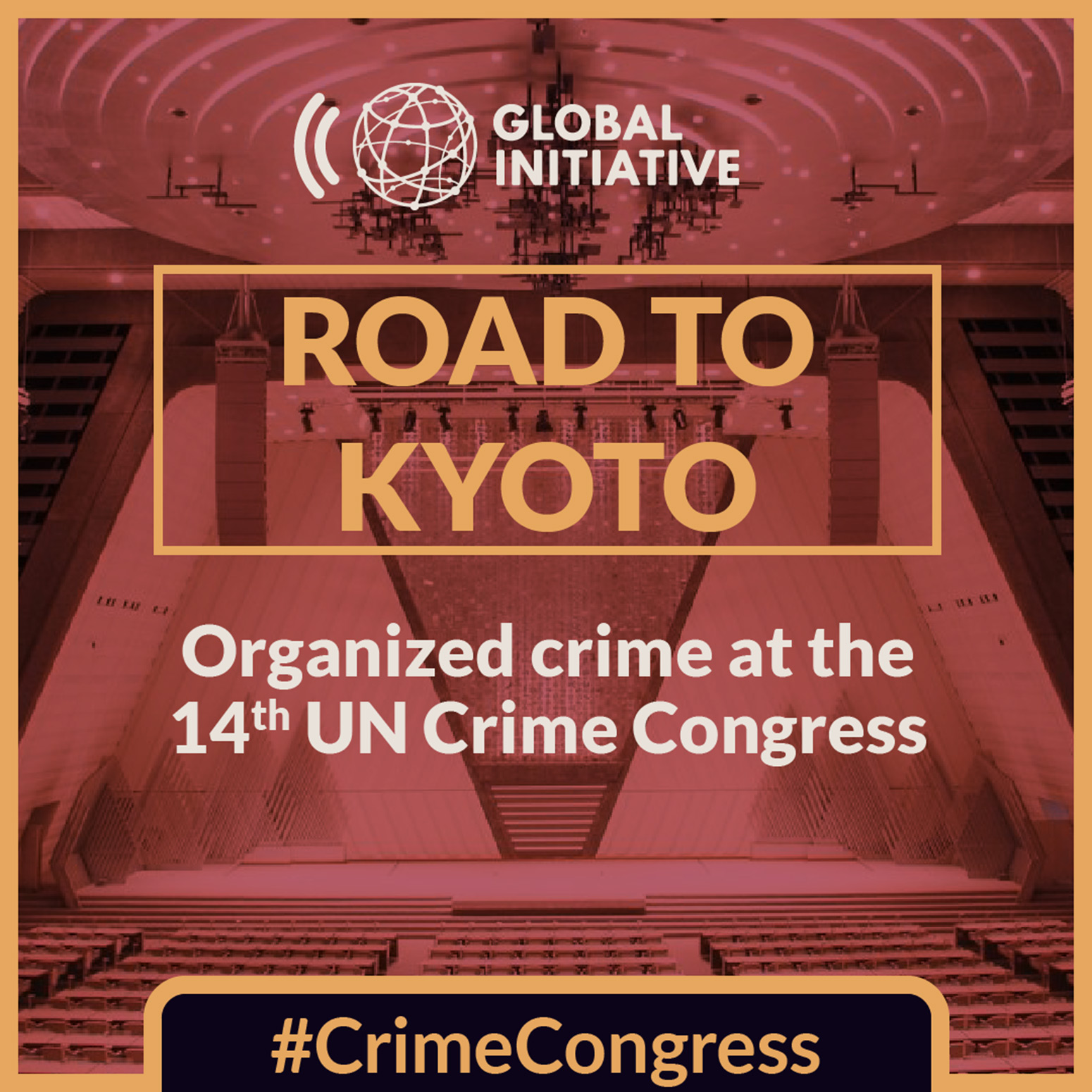
Ian Tennant is joined by Ambassador Ugi Zvekic, Permanent Observer Office of the European Public Law Organization to United Nations in Vienna and Senior Advisor at the Global Initiative Against Transnational Organized Crime.
They dicuss criminal justice governance at the UN.
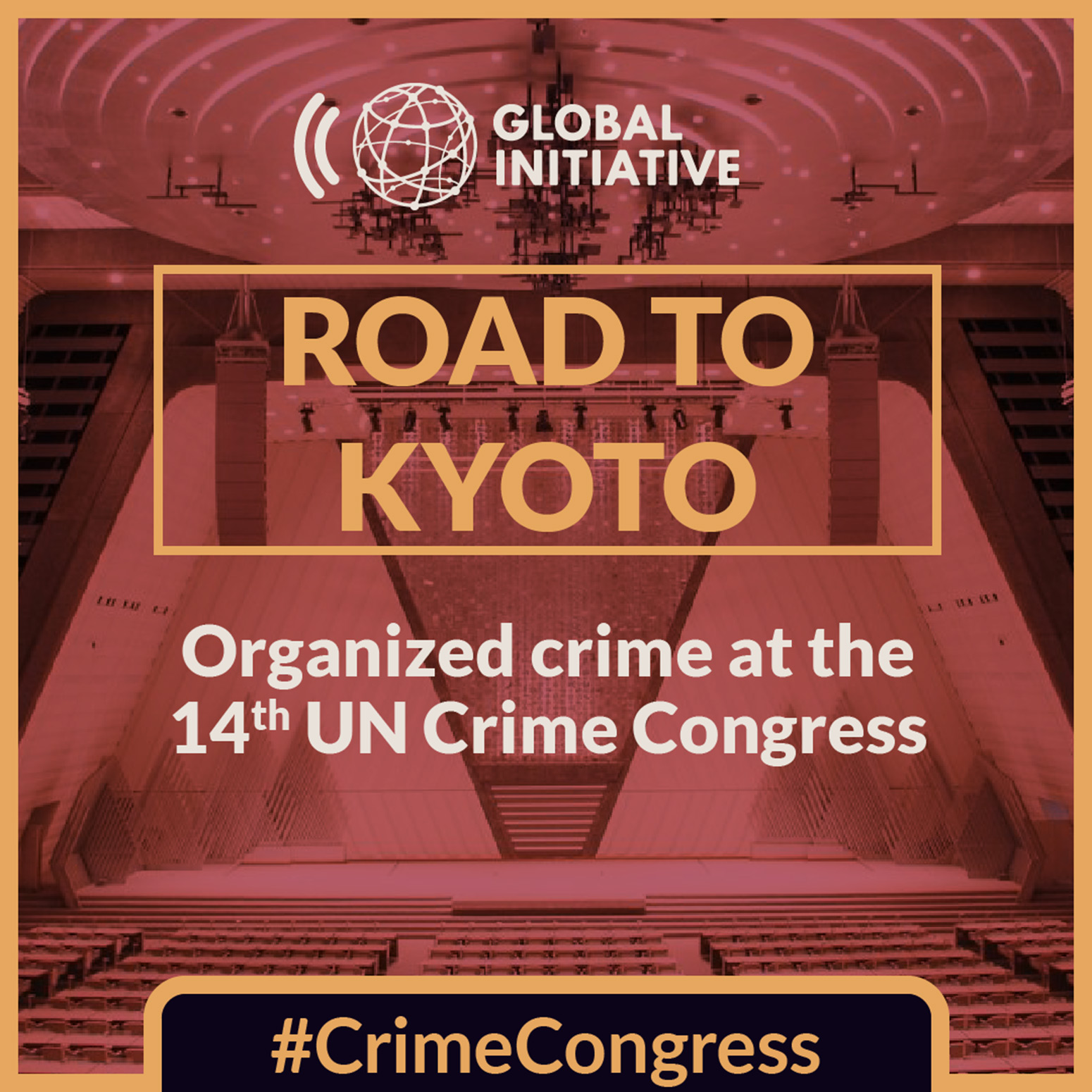
This week Ian is joined by Olivia Rope, the Director of Policy and International Advocacy at Penal Reform International.
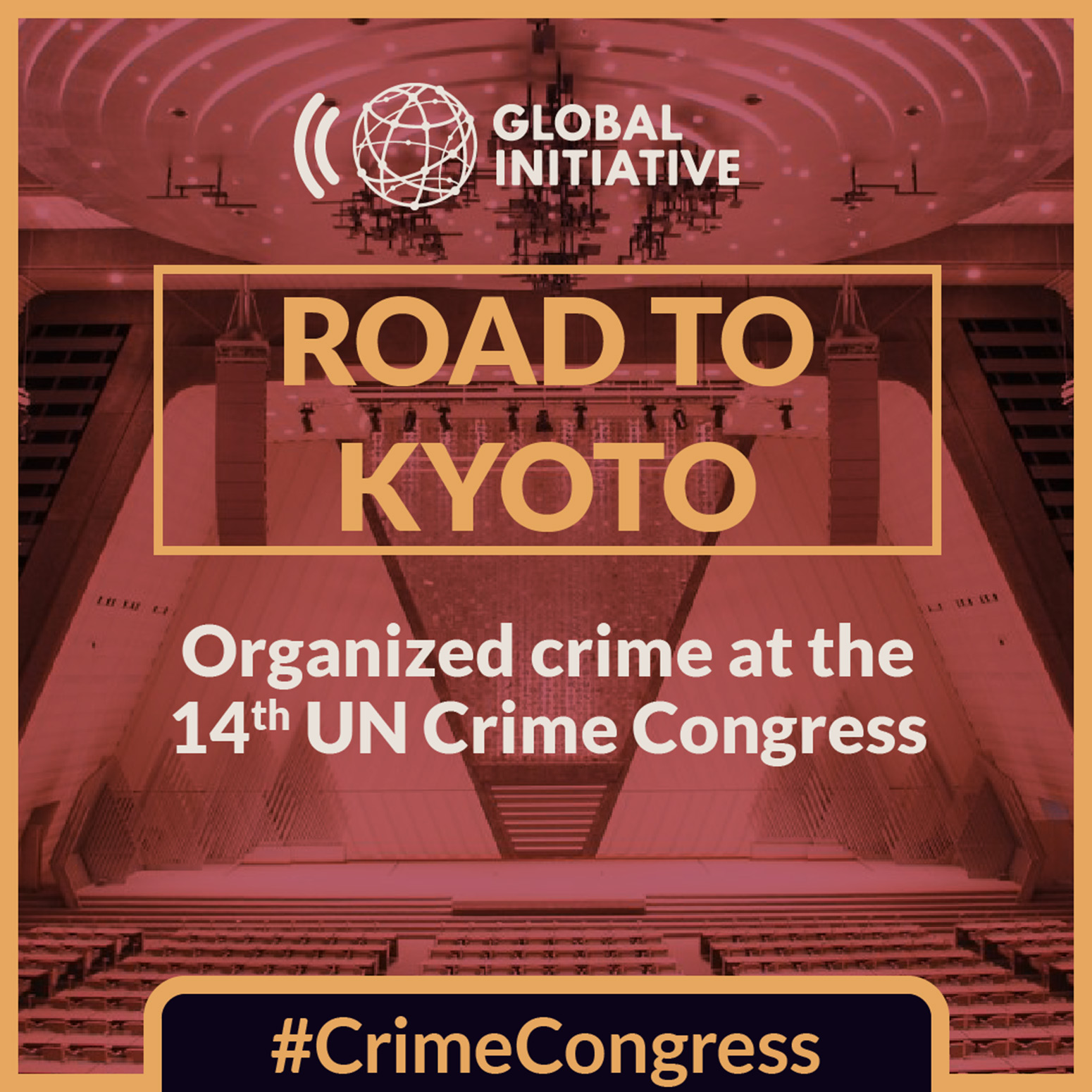
This week, Ian will be discussing cybercrime with Neil Walsh, the Chief of the Cybercrime, Anti-Money Laundering and Counter-Financing of Terrorism Department at the United Nations Office on Drugs and Crime (UNODC).
Presenter: Ian Tennant
Guest: Neil Walsh
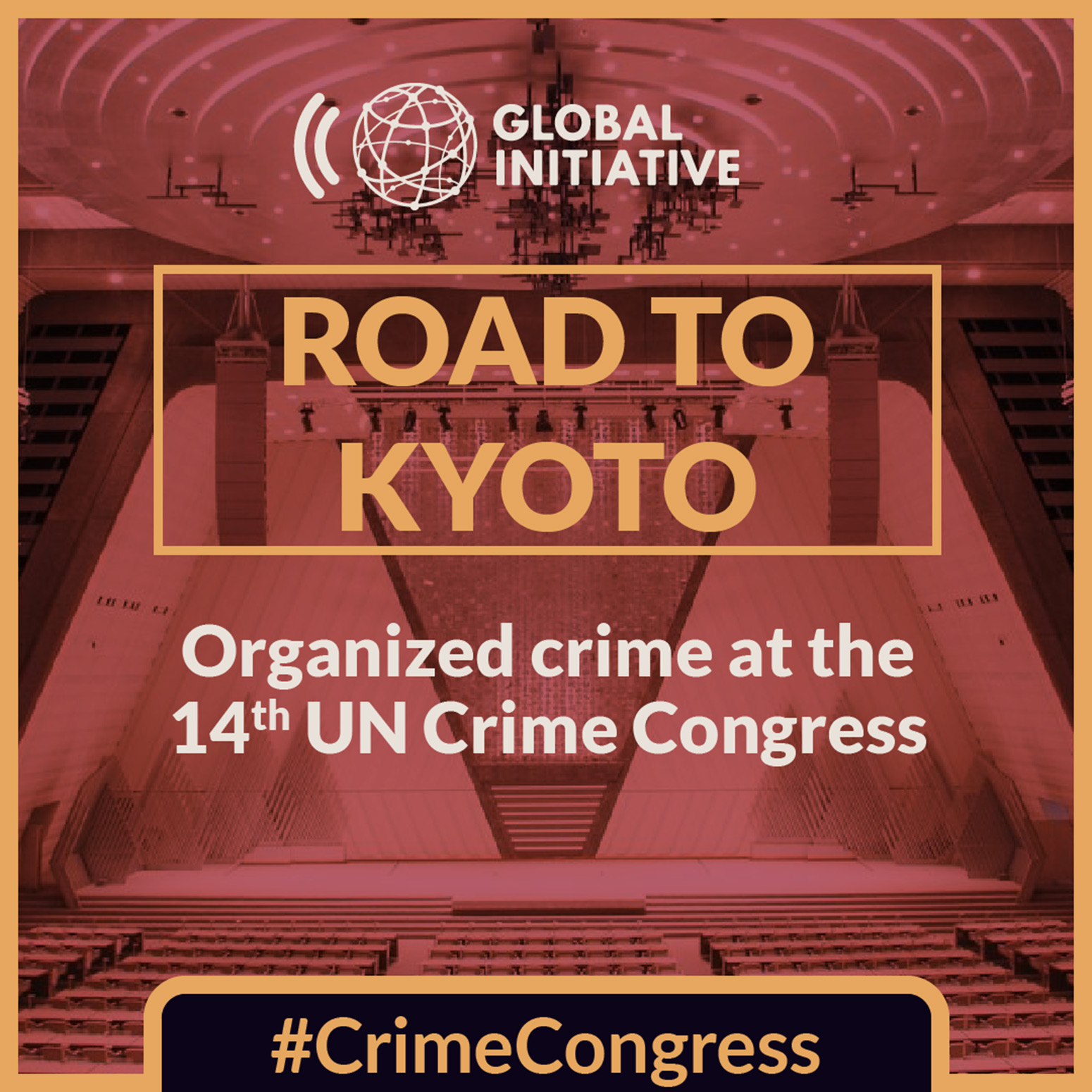
Today Ian will be discussing the role of civil society groups at the Congress with the Chair of The NGO Alliance on Crime Prevention and Criminal Justice, Anna Alvazzi del Frate.
Presenter: Ian Tennant
Guest: Anna Alvazzi del Frate
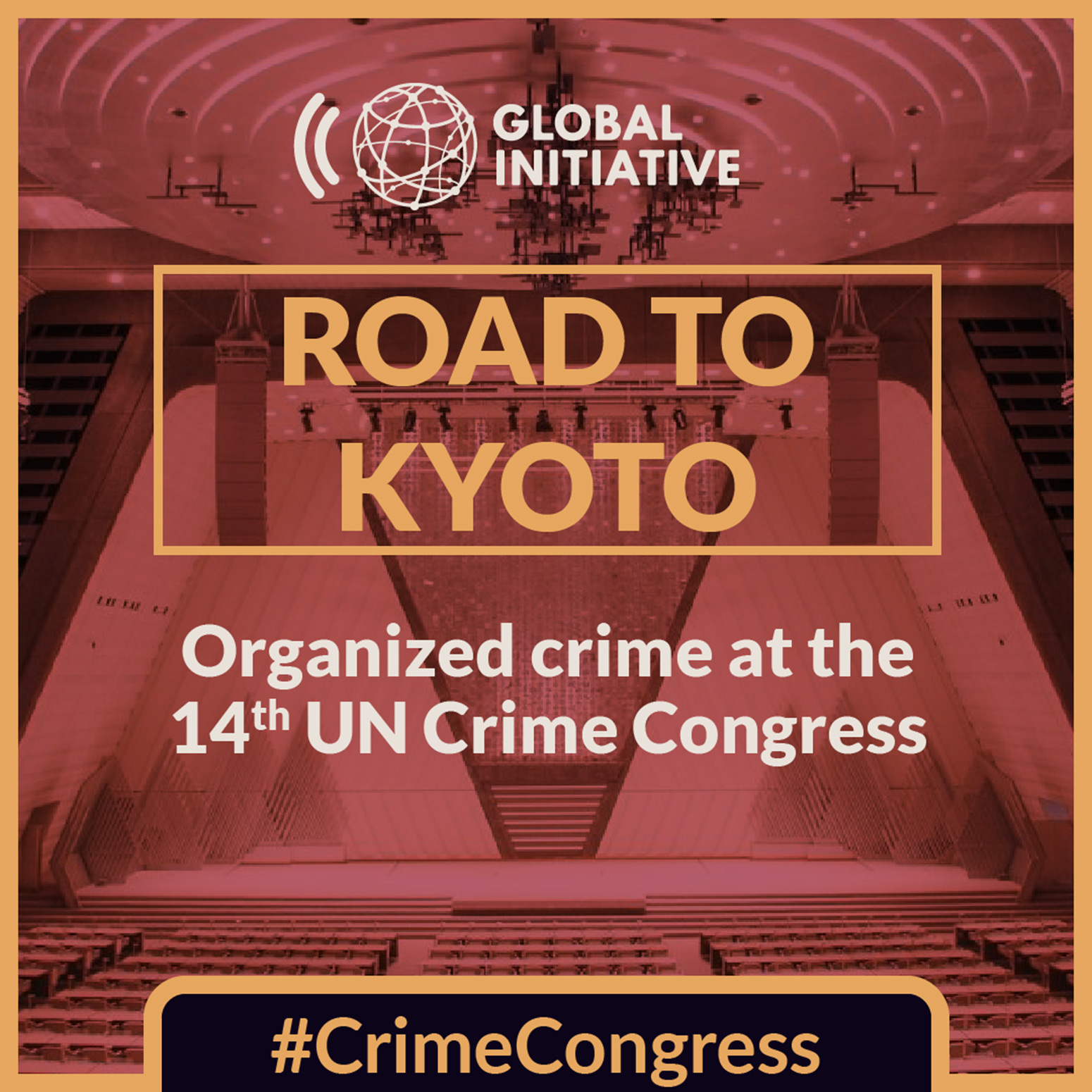
In this first episode presenter Ian Tennant sits down with the Director of the Global Initiative Against Transnational Organized Crime to discuss the role of the UN Crime Congress.
Presenter: Ian Tennant
Guest: Mark Shaw
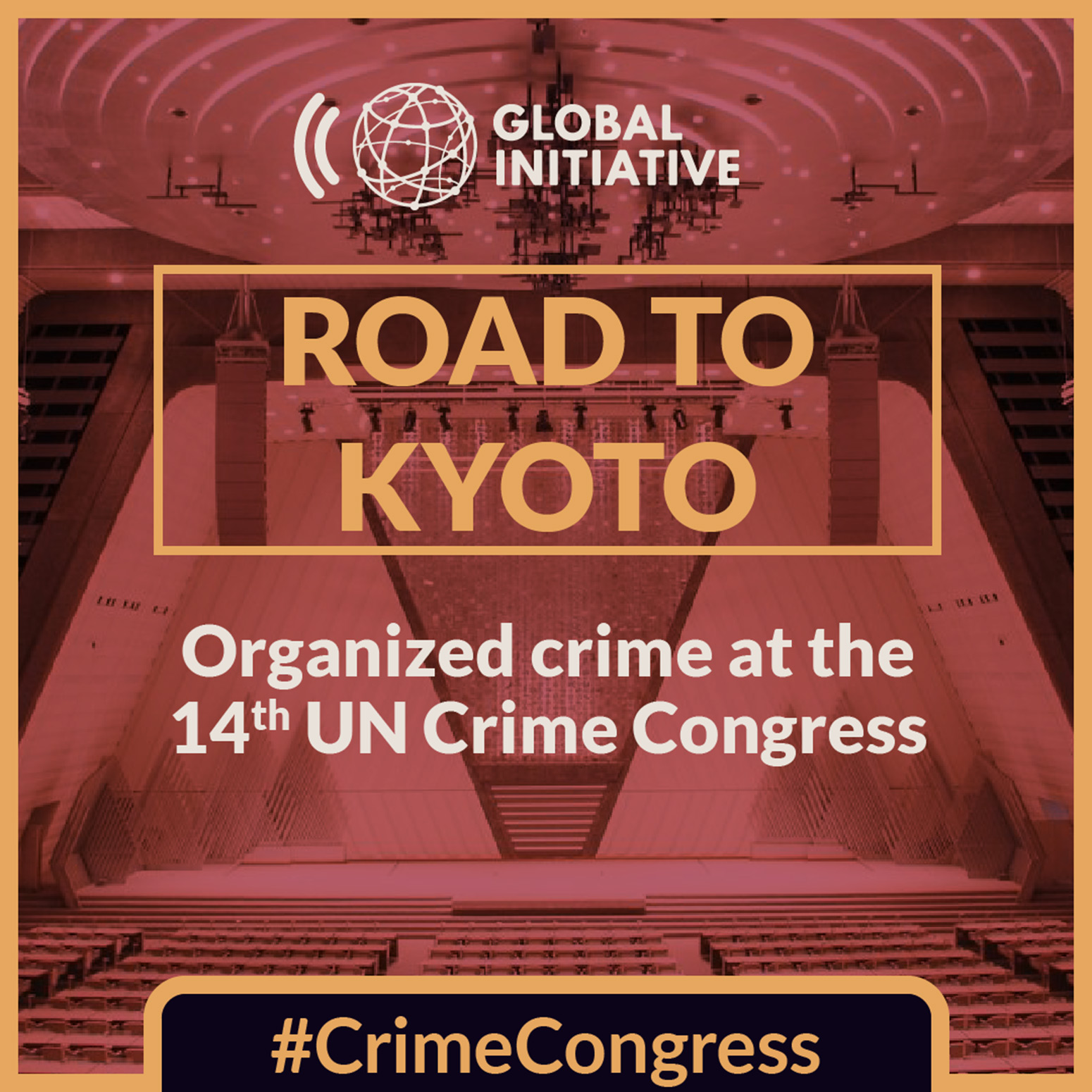
Ian Tennant from the Global Initiative sits down with the Chief Operating Officer of the IDPC, Jamie Bridge and Gloria Lai, the Regional Director for Asia at the IDPC.
Presenter: Ian Tennant
Guest: Jamie Bridge
Guest: Gloria Lai

